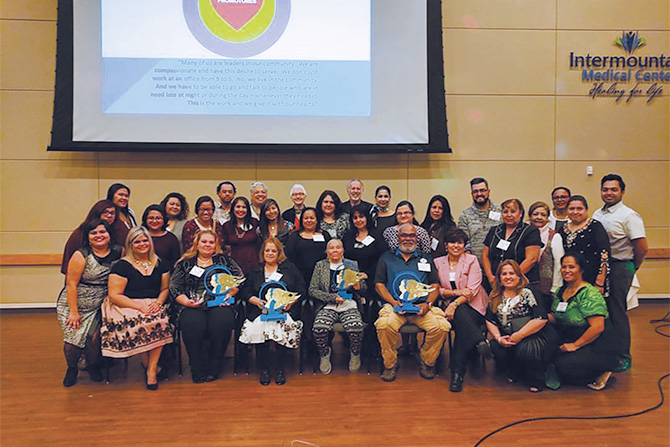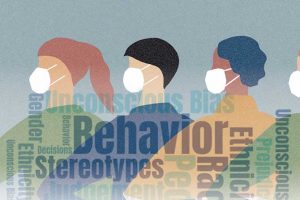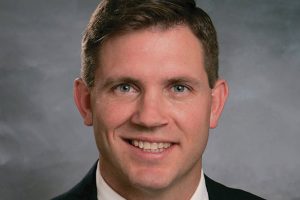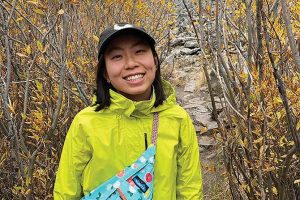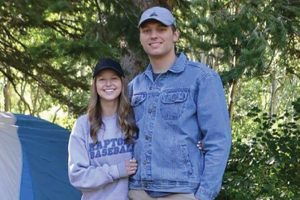By Oreta Mapu-Tupola
A 2018 report from Utah Health Policy Project stated, “Leaders ranging from healthcare to government, have pointed to the CHW workforce as the next step forward in the quest to improve the quality and efficiency of the U.S. health system in general, and for the role they can play in reaching underserved population groups, and ultimately increasing health equity and decreasing/eliminating disparities.”
When the COVID-19 pandemic began to spread throughout the U.S. and here in Utah, Community Health Workers were immediately called up as a part of response team efforts to reach our most vulnerable community members to help slow the spread of COVID-19.
Utah Governor Gary Herbert initiated the development of a Multicultural Task Force led by Nubia Peña (Director of Utah Division of Multicultural Affairs). The Task Force mobilized CHWs to ensure that our most highly impacted communities were identified and provided with critical resources to help manage the spread of COVID-19. To those who were already aware of the valuable work being performed by CHWs in these vulnerable communities, their inclusion by the Task Force was no surprise. But many Utahns may not be aware of the CHW program and how it was established in Utah.
In 2012, a Community Health Worker (promotora) from the Latinx community named Jeannette Villalta recognized the need for support for CHWs in Utah. As a veteran in the health care workforce, she was feeling the strain of an increasing workload with complex cases that could also be emotionally taxing. She recognized that if she felt the toll of burnout, others were feeling the same way. Jeannette had several discussions with other community partners, which led to a conversation with the Utah Department of Health and Utah Public Health Association. Their meetings turned into what is now the Utah Broad-Based Community Health Worker Coalition, which was organized to support and promote the work of CHWs.
This work led to partnerships with Intermountain Healthcare, the Association of Utah Community Health (AUCH), and the Utah Public Health Association (UPHA). Intermountain Healthcare provided funding to develop several programs to support and promote CHW work. AUCH was tasked with creating a pilot CHW program within its organization. AUCH hired five CHWs to address emergency room utilization and social determinants of health among frequent health care utilizers from five identified hot spots in Salt Lake County. UPHA was tasked with organizing a professional section/association for CHWs to provide education, training and support for the workforce. The official Community Health Worker Section was organized in May 2016. This opportunity produced a CHW Certification and Training program, statewide CHW professional association, increase in the state CHW workforce, CHW leadership and representation at local, state and government levels, and CHW recognition on multidisciplinary care teams across diverse professions.
At the heart of the work performed by CHWs is the relationships they build with community members. CHWs are known by different titles throughout Utah: promotora, lay health worker, patient advocate, peer support specialist and many others. While they may be known by different titles, all CHWs have one thing in common: the trust of the communities they serve. They are trained laypeople who share life circumstances with the clients they serve and are “natural helpers.” CHWs work in a variety of settings throughout Utah in both paid and volunteer positions such as Community Health Centers and Homeless Health Centers.
CHWs have been part of Utah’s communities. The trusted relationships they have with community members are the primary reason they have been called on in response to the pandemic, not just in Utah but across the world. The UPHA CHW Section Leadership, AUCH and the Broad-Based CHW Coalition all continue to work together with Cares Act funding through the Office of Health Disparities. They hire and train CHWs in mobilizing efforts in communities with a high prevalence of COVID-19 to ensure correct information, access and resource connection.
CHWs are working on the front line at testing centers, health facilities, and community-based organizations (CBO), providing outreach, education, and resources to address social determinants of health. Cares Act Funding was also granted to the UPHA CHW Section who hired a COVID-19 program coordinator, outreach coordinator, and membership coordinator to assist with the development and implementation of training programs for local, state and county CHWs as well as professional development and support for the CBOs who provide wrap-around services for community members impacted by COVID-19.
CHWs have also been working with the state to develop and distribute multicultural materials for various ethnic communities in different languages and deliver presentations through traditional media, social media and the news.
The power of these collaborative efforts has demonstrated the effectiveness of CHW work. Their ability to reach diverse, underserved community members, provide culturally appropriate services, and connect them to resources that improve their quality of life is nothing short of a miracle. There are so many barriers and inequities that serve as obstacles to ensuring health equality and equity to all community members. Community Health Workers help connect these community members to resources that may have previously seemed completely inaccessible.
Through services such as language interpretation, translation of marketing materials, community outreach and education, systems navigation and care team representation, CHWs are a service extension to many professionals. They provide holistic care and follow up to patients — especially those who need extra care and assistance.
Only through collaborative efforts can we better serve our communities. Utah has been a great example of these efforts bringing together community and government sectors in addressing the health care of ALL community members. We are all in this together! Together, We Can!
Oreta Mapu-Tupola
This story appears in Issue 2 2020 of the UAFP Journal.

